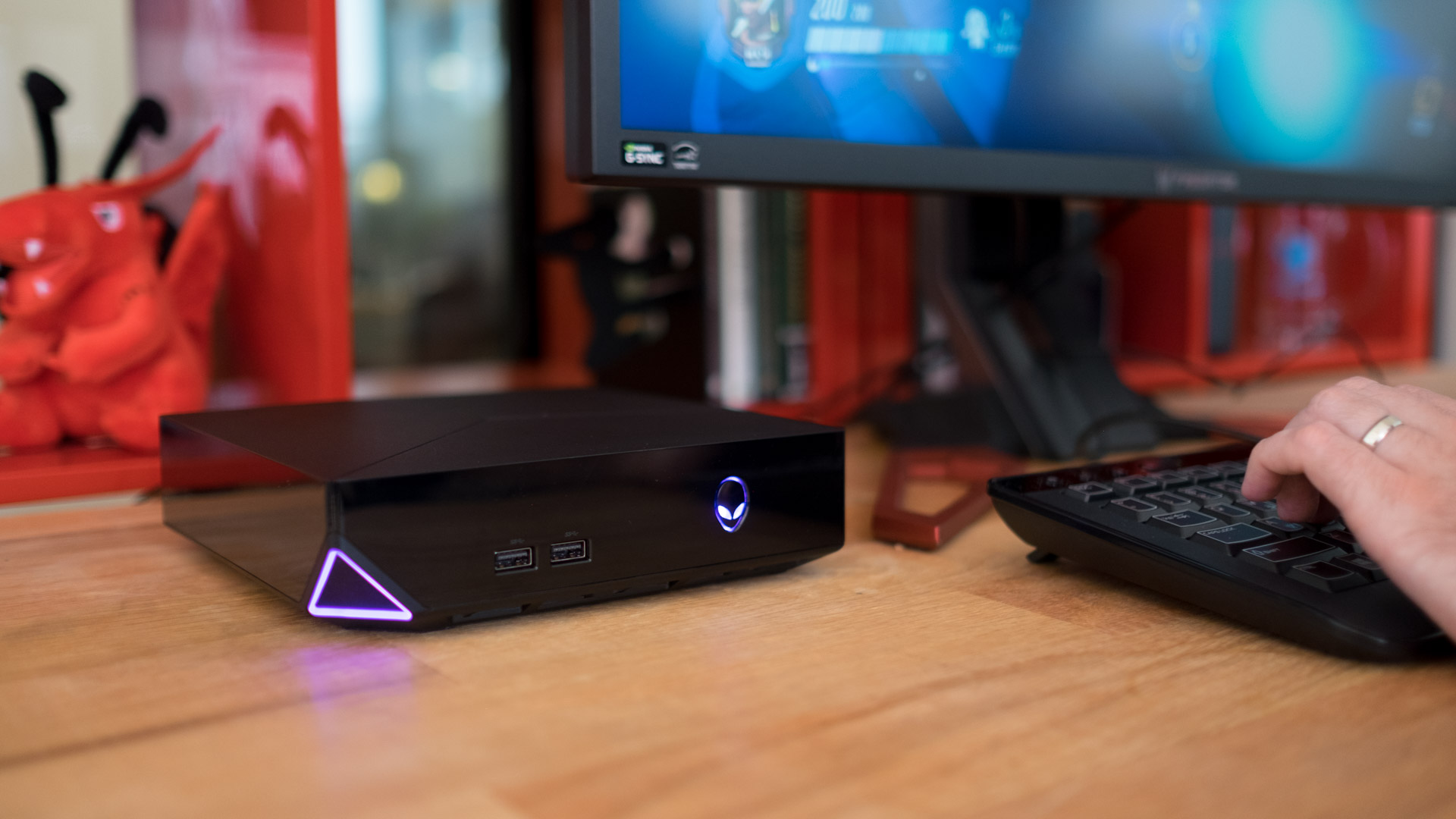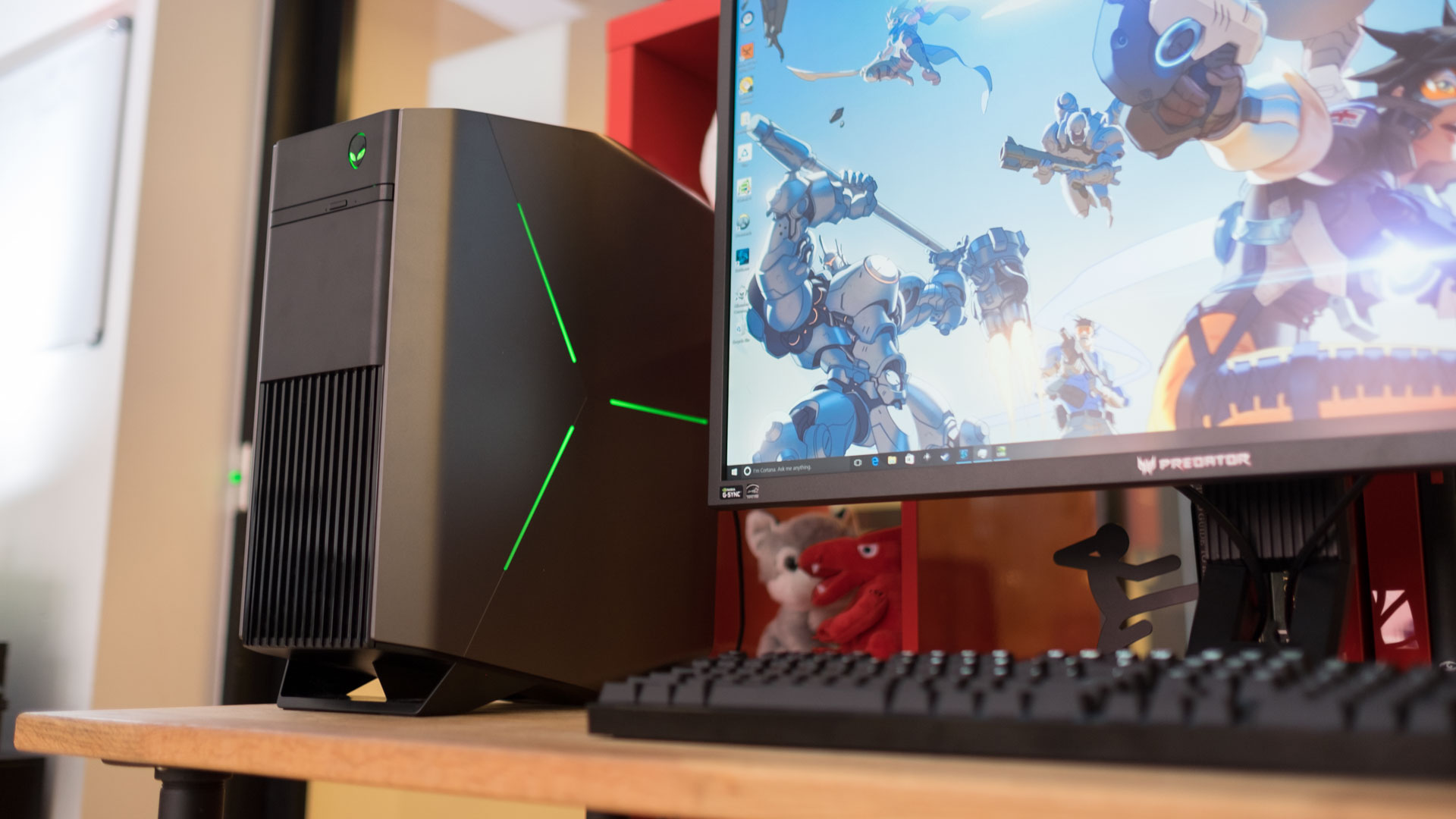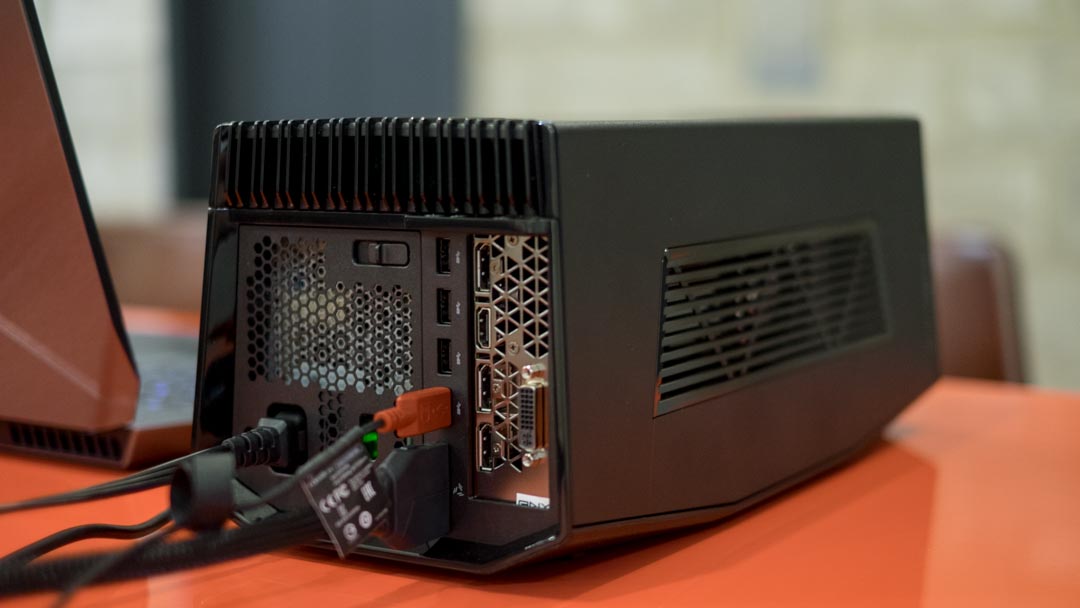Alienware: 'We didn't build the Graphics Amplifier to be a one-hit wonder'
Company's co-founder talks GPUs, Steam Machines and VR

As such, I would give some credit to the Steam Machine initiative for helping Microsoft realize what they had. If you look at the actual use model of Steam Machines, there's a lot of benefit to the platform. If somebody isn't interested in dealing with Windows updates or using a keyboard and mouse - somebody who might just want an appliance on their TV to play thousands of games out there - then a Steam Machine is a solution.
Do you think there's potential for Steam Machines to ever sell in the millions of units?
They may never sell in the millions of units, quite honestly. But the fact is that there's a solution and there's been a huge partnership between hardware companies and Valve to go and build these solutions. I think this is the first time we've had an alternative platform that's viable, works, is reliable and is shipping.

The industry, depending on how things evolve over time, may gravitate towards that in the future. If it doesn't then I would say that's also a win, because it means that traditional Windows PCs are doing so much right that there's really no need to move over to Steam Machines. I think that's great for the entire industry. On the other hand, if things don't continue to go well for Windows PCs, then there's another option for the entire industry and that's a great win too.
From the Alpha R2 and the Graphics Amplifier to the Aurora R5 or the X51, Alienware's recent products have a clear upgrade path. How important is that in the age of VR, where it's inevitable that gamers will need increasingly powerful GPUs as headsets evolve?
Upgradability has always been a key factor for us. The reality is that it's probably a better business decision to not make a product upgradeable and some companies make those decisions. When we started the company in the early days we always had the mantra of building things the way we would want them built for ourselves.

Take our notebooks, for example. For a long time everything in them was upgradeable. Over time certain things have unfortunately moved beyond our control and changed in the industry. For example, silicon has moved from being socketed to being soldered on as the only option, which has limited our customers' upgrade path in our notebooks. It's not because we want that - we've pushed our vendors to do things the old way, but some decisions are beyond our control.
Get daily insight, inspiration and deals in your inbox
Sign up for breaking news, reviews, opinion, top tech deals, and more.
What impact do you think the Nvidia's new GTX 10-series notebooks will have on external GPU enclosures? Do you think people will gravitate toward laptops with that power there, rather than a weaker solution with an external booster?
Well, we didn't build the external graphics amplifier to be a one-hit wonder, or a solution to a period of six months or a year. It's a commitment we've made for a very long time. We were the first out there with such a solution and have developed a proprietary interface around it because it has significant bandwidth and cost advantages for the customer.

There's confusion around external GPU enclosures too - people think they can plug them into any USB-C notebook and they'll have external graphics support, but that's not the case at all. Our investment in external graphics has been a long term commitment of around eight years or so, going by our patents. This is a long-term vision for us and something we've looked into significantly.
It's great that notebook performance has mostly caught up with desktop graphics. Doing VR in all our notebooks and the value you get for dollars per performance is all phenomenal, but when the next generation of notebooks comes along in two or three years for now, you've got two options; buy a new notebook for thousands of dollars, or a Graphics Amplifier for two-hundred bucks, along with an off the shelf graphics card. For less than half the money you just got a jolt in performance for 4K or 8K gaming, or VR, whatever it is.
